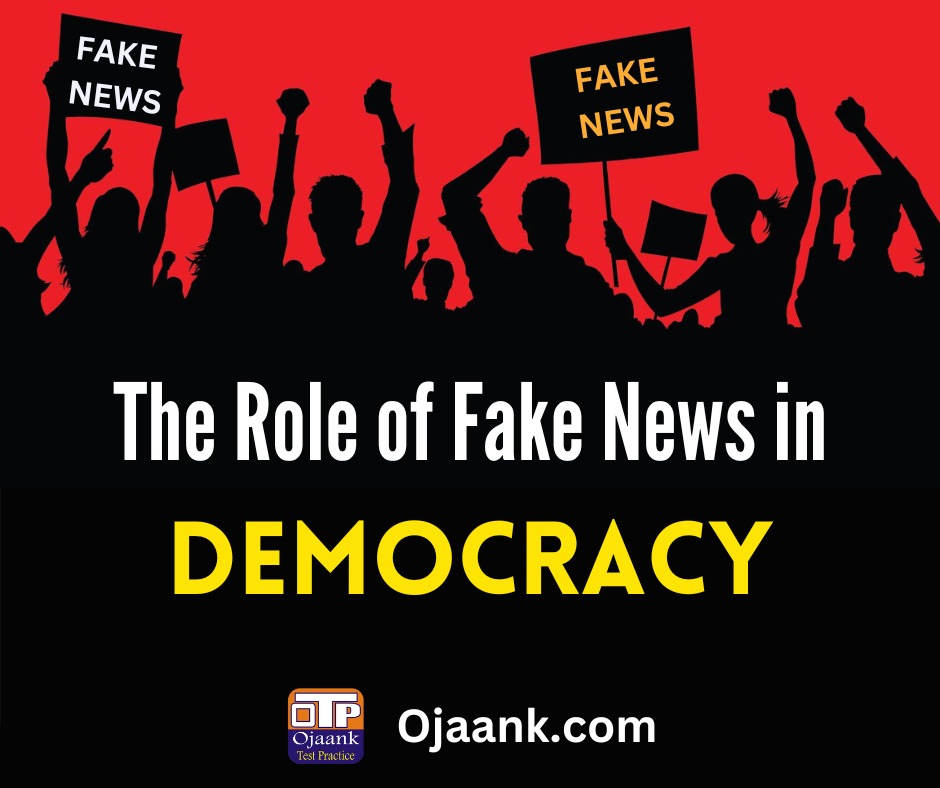The Role of Fake News in Democracy

Democracy, the cornerstone of modern governance, relies heavily on a well-informed citizenry to make informed decisions and shape the course of their nation. However, in recent years, the rise of fake news has posed a significant threat to the integrity of democratic processes worldwide. Fake news refers to deliberately false or misleading information presented as legitimate news, often spread through social media and other online platforms. This essay delves into the role of fake news in democracy and its detrimental impact on society.
In a democratic society, trust in the media and public institutions is essential for effective governance. Fake news erodes this trust, as it blurs the line between fact and fiction, leaving citizens unsure of what to believe. When individuals are inundated with a barrage of false information, they may become skeptical of all news sources, including credible ones. This skepticism can lead to a general disillusionment with the democratic process, reducing citizens' engagement and participation in civic activities.
Fake news often plays a role in exacerbating political polarization and deepening societal divisions. Misinformation campaigns target specific groups or individuals to manipulate public opinion and advance specific agendas. By disseminating fabricated or misleading stories that align with pre-existing beliefs and ideologies, fake news reinforces echo chambers, where individuals are exposed only to information that confirms their biases. As a consequence, citizens become more entrenched in their views, hindering constructive dialogue and compromising the essence of a vibrant democracy that thrives on open debate.
The impact of fake news on democratic elections cannot be underestimated. Malicious actors can exploit this medium to spread false narratives about candidates, political parties, and election processes. Such disinformation campaigns aim to sway public opinion, distort electoral outcomes, and create chaos in the electoral process. The distribution of fake news during elections can manipulate voters, creating an environment where the will of the people may be compromised.
Democracy thrives on the free flow of ideas and opinions, but fake news can pose a serious threat to freedom of expression. In some cases, governments or powerful entities may use fake news as a pretext to suppress legitimate dissent and criticize independent media outlets. Under the guise of combating misinformation, they may introduce laws or regulations that curtail freedom of speech and press freedom. This stifles open discourse and impedes the public's access to diverse viewpoints, jeopardizing the democratic fabric of society.
The prevalence of fake news has also contributed to a decline in quality journalism. As misinformation often spreads faster than verified news, media outlets may prioritize sensationalism and clickbait to compete for readership. The pressure to produce attention-grabbing headlines may lead to a reduction in fact-checking and thorough investigative reporting. This decline in journalistic standards can further erode public trust in the media and weaken the role of journalism as a cornerstone of democracy.
Fake news presents a formidable challenge to democracy by eroding trust, fueling polarization, and undermining the democratic process. To safeguard the integrity of democratic institutions, it is essential for individuals, governments, and technology platforms to collaborate in combating misinformation. Promoting media literacy and critical thinking skills can empower citizens to discern between reliable information and fake news. Technology companies must continue refining their algorithms to limit the spread of false information. Additionally, governments should adopt transparent policies to address fake news while upholding the principles of freedom of expression and press freedom. By collectively addressing the issue of fake news, societies can fortify their democratic foundations and foster a well-informed citizenry capable of shaping a better future.